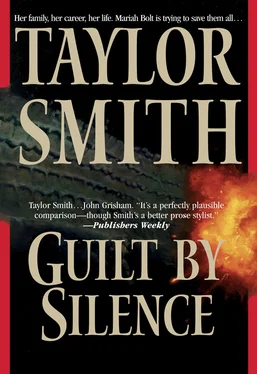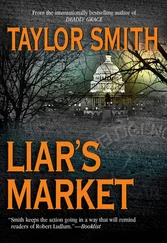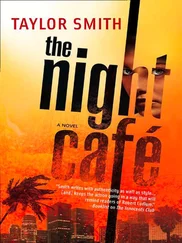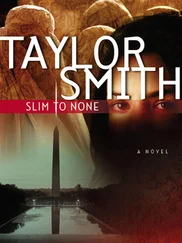During the ten-minute ride to the hospital, Fred Hansen went over the schedule one more time. “You’ll have about thirty minutes to tour the new unit before the official opening,” he told McCord. “Then we’ll have some speechifying and ribbon-cutting and such. Then it’s off to the hotel for lunch. Should be all done by around two, then we’ll get you back to the airport. Jerry here tells me you’re flying out today to Washington?”
Stella Hansen’s eyes grew wide. “Are you going to be seeing the President? What’s he really like?”
McCord shrugged. “Pretty much like most folks, Stel. Puts his pants on one leg at a time.”
She shook her head, obviously skeptical. “I can’t imagine what you must think of poor little Fargo, Gus, after all the places you’ve been and people you’ve met.”
“There’s nothing poor about a place with air as clean and people as fine as this city’s,” McCord said soberly. “Don’t ever think different, Stel.”
Glancing back, Pflanz saw Stella Hansen looking as if she would melt. He and Jerry Siddon exchanged fleeting looks of amusement as they listened to McCord charming the mayor and his wife. Siddon, Pflanz reckoned, would be calculating once again the number of months to the presidential primaries. He had listened to the eager young aide explain ad nauseam why Gus had to run. McCord had everything going for him, Siddon said—money, charisma (despite less-than-classic looks), a charming wife, nice kids and photogenic grandchildren, a Horatio Alger personal history and an outstanding record of community service. He couldn’t possibly lose.
And if Gus McCord went to the White House, Pflanz knew, Jerry Siddon intended to be there as his right hand. Siddon was thirty years old, and had been working for McCord Industries for five years after graduating from Stanford near the top of his business class. But it was his extracurricular activities on behalf of American Families of Missing Vietnam Veterans that had brought a teenage Jerry Siddon to Gus McCord’s attention. Siddon’s father had disappeared in a bombing raid over Hanoi in 1970. Jerry had been the youngest member of a delegation from the AFMVV that had approached McCord in the early eighties to help finance and organize a search for men rumored to be still alive in Vietnam. With the tacit support of the CIA, a mission had gone ahead under the direction of Dieter Pflanz and a team of quietly hired mercenaries. But the evidence the contingent obtained had been inconclusive.
As a result of that first meeting, however, Siddon had caught McCord’s eye and his sympathy. The billionaire had subsequently underwritten Siddon’s college studies and guaranteed him a job upon graduation. Siddon repaid the debt with hard work and unstinting devotion to the interests of Gus McCord. Today, those interests included reaping good PR value from the opening of the latest in a string of McCord charitable facilities.
To Pflanz, however, these hometown good deeds were just so much chaff, incidental to the real mission.
“What’s bugging you, Mariah?” Frank Tucker asked, studying her closely.
She had risen from her chair to leave his office, but when she got to the door, she hesitated, her hand resting on the knob, a frown creasing her forehead. Then she turned back to face him. “Did you see the news last night? CBN?”
Frank exhaled a long sigh and he shook his head regretfully. “Damn. I was hoping you had missed it.”
“Oh, I saw it—and Paul Chaney. And not just on the tube.”
“What do you mean?”
“He was waiting for me when I left David last night,” Mariah said. She moved away from the door and ran her hand along the line of books on Frank’s credenza, straightening the edges—an instinctive reaction against chaos. “And he left a message on my answering machine.” She stopped cold and looked toward the ceiling, her jaw clenched. “Oh, dammit, Frank! Lindsay took the message off the machine. If she ever—”
“Whoa! Slow down. You’re not making any sense. Sit down and tell me what happened.”
She drummed her fingers on the edge of the credenza, then turned and leaned against it, crossing her arms tightly across her chest, looking down at the toes of her shoes. “Paul Chaney showed up at the nursing home yesterday. He had seen David earlier and was waiting for me. Said he needed to talk about what really happened in Vienna—something about the people who did this to David and Lindsay. He called my house, too. And then I saw that thing on the news.”
“You knew him in Vienna, didn’t you?”
Mariah nodded. “David knew him better than I did. They played hockey together, but we all used to get together after the games. And he hung out on the cocktail circuit, of course, trolling for news leads—and women,” Mariah added wryly. “He and David got to be good friends and Paul used to drop by our place a lot, but I never felt very comfortable with him. He’s one of those guys who figures he’s God’s gift to womankind.”
Tucker watched her closely, and then a grin formed at the edge of his lips. “Make a pass at you, did he?”
Mariah grimaced and nodded.
“Had he been in touch since you got back to the States?”
Mariah shook her head. “He came to the hospital in Vienna a couple of times, but I hadn’t seen him in months before he showed up yesterday.”
“Does Chaney know you’re CIA?”
“No, I’m sure he doesn’t. David wouldn’t have told him—he was absolutely discreet. During the entire three years we were in Vienna, there was never the slightest hint that my cover was blown, with Chaney or anyone else. As far as anyone knew, I was simply an embassy administrator. Chaney always seemed more interested in David’s work at the IAEA. He often turned to David to demystify some of the complexities of nuclear issues, and he knew that David was working to beef up the agency’s policing role.”
“So what do you think Chaney’s on to now?”
Mariah glanced at him sharply. “That’s what I was hoping you’d tell me,” she said. She came forward and stood in front of his desk, leaning closer, hands planted in the middle of his papers. “Frank, you told me—you swore—that the truck hit our car by accident. You knew I wasn’t in any position, between David’s and Lindsay’s injuries, to pay close attention to the investigation. But you promised me that every angle would be looked into.”
“And it was.” Frank brought his hammy fists together and stared at them intently for a moment before looking back up at her, his voice low. “Dammit, Mariah—don’t you think I was blown away by what happened? I felt responsible. I recruited you, helped you get that assignment in Vienna. I felt bloody awful when things ended up the way they did.”
Mariah’s shoulders slumped as she watched his gruff old face transformed by guilt. She reached out and squeezed his hand. “It wasn’t your fault, no matter what. But now, with Chaney, I’m wondering again….” She sank down onto a chair and stared at the floor. “It was just a fluke that I wasn’t in the car. David should never have been there. He normally jogged to work, but at the last minute that morning we changed plans. Lindsay had a science project that she needed help carrying in and I had an early meeting with an asset, so David drove her to school. If they hadn’t dropped me off first, neither of them would have been there when the brakes failed on that truck.”
Frank nodded. Mariah knew she had told him this before, but the awful irony of it never left her. David’s life had been destroyed in her place because she’d been too busy that morning to drive their daughter to school. Now, what if it wasn’t an accident, after all?
“I’ve been thinking—was I the target?” she asked quietly, her eyes fixed on his. “Was it the CHAUCER operation? Was someone trying to kill me and made a mistake?”
Читать дальше












